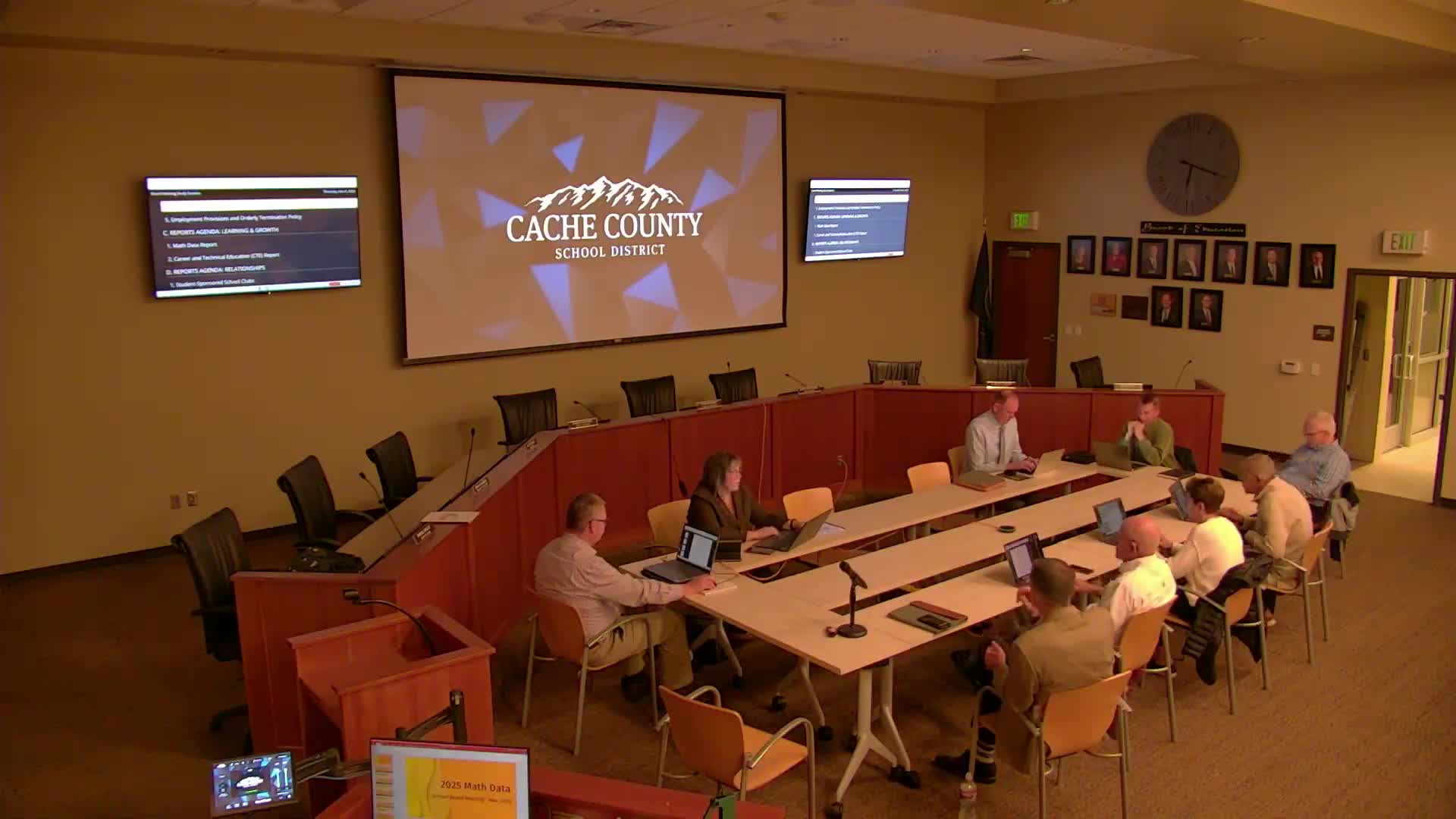District math data: strong K gains, eighth-grade proficiency near 62%; Aspire Plus and assessment limitations discussed
Get AI-powered insights, summaries, and transcripts
Subscribe
Summary
A district review of math assessments showed substantial kindergarten gains, stable eighth-grade proficiency around 62 percent and rising consolidated proficiency across grades 3–8, while leaders cautioned that state tests are only one data point.
The board received a multi-measure math assessment report from Jeremy Young, the district’s director of assessment, covering Acadience Math (K–3), RISE (eighth grade), Aspire Plus (9–10) and a consolidated third-through-eighth grade view.
Young highlighted several findings: kindergarten end-of-year proficiency rose about 11 percentage points in the most recent year; the district’s eighth-grade RISE proficiency rate is roughly 61–62 percent, which is about 20 percentage points higher than the state average reported in board materials; and the district’s consolidated 3–8 proficiency percentage increased at a faster rate than the state over the prior three years.
Young and board members cautioned that state and standardized assessments represent a single data point. “It’s 1 data point,” Young said, and the superintendent and other board members urged that the RISE and Aspire Plus results be interpreted alongside classroom measures, ACT indicators, and graduation data. The board noted variability school-to-school and year-to-year and discussed the district’s ongoing curriculum adoption and efforts to align instruction with assessments.
On secondary course-based assessments, Young said state legislation will move assessments to course-based models in 2027, which district assessment directors consider a more valid measure of student learning.
Why this matters: the data inform curriculum decisions and the upcoming curriculum-adoption process and affect how the district plans interventions and resource allocation for math instruction.
